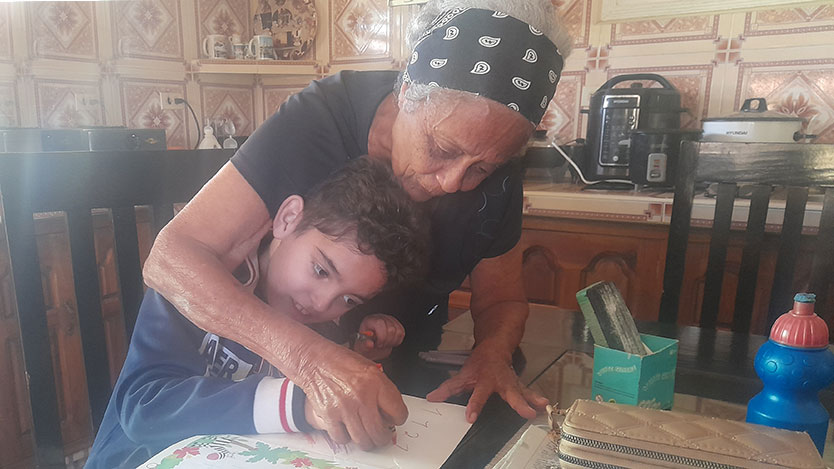
A total of 16 students receive education at home by outpatient teachers in Morón, an option for those who attend Primary and Secondary education, and have physical-motor or intellectual limitations and, for these or other reasons, cannot attend educational institutions.
Emérida Morales Paris, a methodologist for Special Education in the Rooster City, told Invasor that seven outpatient teachers assume this task, distributed in Primary (4), Special (2) and Secondary (1) Education. They are usually retired educators with extensive experience and sensitivity.
According to the design of this modality, each teacher attends to three students, for two hours, three times a week. Among the students, there are children with Down syndrome, and others diagnosed with malabsorption of food, allergies and narrowing of the duodenum, cystic fibrosis, diabetes mellitus and immunosuppressed, psychiatric disorders, generalized focal epilepsy of the frontal side, among others.
Outpatient educational care is one of the modalities established in Cuba by the Ministry of Education, to respond to the dissimilar needs of students. It refers to actions of an interdisciplinary, comprehensive and inclusive nature that are developed with students with chronic or transitory diseases who, for different reasons, cannot attend school permanently.
"The family and the community are involved in these actions with the objective of achieving schooling at the educational level in question and the necessary transformations to improve their quality of life and face the disease that accompanies them," the website of the MINED says.
Héctor Alejandro Pérez is an 8-year-old boy from Morón who has received Gladys, his outpatient teacher, at his home since November 2022, due to his diagnosis of symptomatic epilepsy. He lives with his parents on the outskirts of the city, where love and understanding are not lacking and have been the fundamental key in his development. Although sometimes it is difficult for him to learn to read, writing is already a won territory.
The numbers up to 20, the colors in Mandarin and Spanish languages make Hector's learning progress noticeable over time. "The objective of our teaching is to prepare children for life, since they are infants with chronic illnesses and some with limited life, so they pass the grade according to their possibilities," Morales Paris said.
Regarding to a report published in the Granma newspaper, at the beginning of last year the country had more than 600 traveling teachers.
